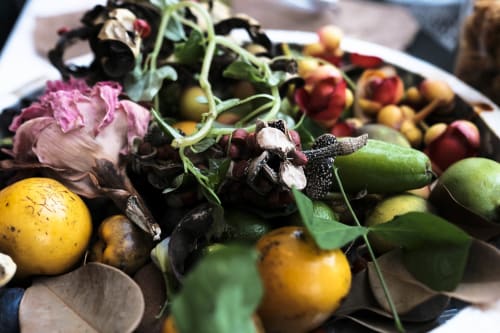“…nothing embodies life quite like food does.” – “Hungry City”, Carolyn Steel
Food is representative of so many things in our lives – freedom, development, progress, instinct, violence, slaughter, love, hope, community, independence.
In the context of the urbanised space in which more than half of the world’s population lives, “you take land away from people, you disempower them,” says Alexius Yeo, urban farmer, CEO of Carbon Inq and founder of Project 33, an urban-farming special interest group.
For a country like Singapore where few people have the luxury, or wealth, to own private garden space, and where 90% of food is imported, there would seem to be a deep sense of disempowerment.
Still, there’s little that anyone can do about the scarcity of land. But perhaps they could try to claw some of their independence back in other, primarily symbolic, ways.
Foraging, for example.
In Yeo’s opinion, “Foraging symbolises a profound connection with the earth and specifically the local (environment). It is a very empowering process for me because it fosters a certain confidence in self while, at the same time, (the process is heavily dependent) on Nature to provide what I need.”
Mamakan Art Collective (now known as Mamakan) produced art exhibitions that utilised edible plants and other botanicals to explore the concept of belonging in an urbanised environment. The exhibitions were shown as part of the Singapore Biennale 2016.
These and the multitude of food-related events – Dîner En Blanc, master classes with renowned chefs, regular pot-luck parties organised by special interest groups – all reinforce how food connects us.
Which makes foraging an extremely sexy notion.
“People definitely are interested,” Yeo says. “There’s so much about it to like.”
It’s easy enough to see how a tagline like “Eat Your Weeds” would light eyes up or the fact that jam made from some mystery fruit tastes like, well, jam. For the more anarchic amongst us, foraging represents one small way of loosening the supermarkets’ chokehold on food sources.
Yeo recalls a foraging tour that he’d organised for Project 33 members. “Fifteen people signed up, but sixty showed up on the day! The MRT station was packed and I had to find a small rock to stand on to address everyone. Like a rally!”
Clearly, word about the tour had spread.
Although not a new concept by any measure, foraging in Singapore seems to have some way to go in terms of general knowledge and understanding.
Fostering awareness is one of the motivating factors behind Mamakan's art and events. She explains, “Plants are the ideal symbols of connectedness to the soil, our roots. They teach us a sense of gravity, while we are floating around in cyberspace… Many children in Singapore are starved of outdoor experiences and also unaware of how to find food in nature.”
LINKS
Project 33
https://www.facebook.com/project33singapore/
Mamakan Art Collective
http://mamakan.com/
This is a shortened version of the original story.
FLORA, FORAGING, INDEPENDENCE, URBAN FARMING, SINGAPORE, EDIBLE PLANTS, BOTANICALS, FOOD SECURITY
